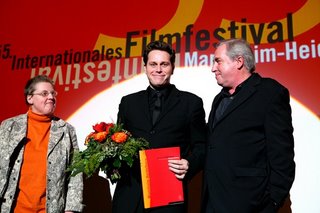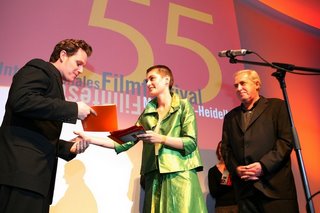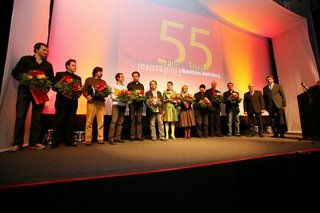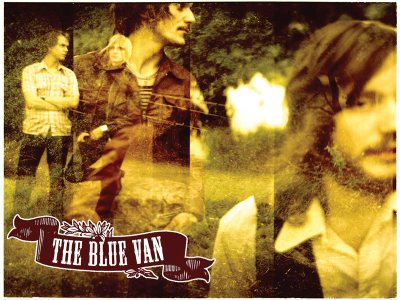Wednesday, November 22, 2006
Kunsten at græde i kor (The Art of Crying)
BASED on the eponymous roman à clef by Erling Jepsen, Kunsten at græde i kor is a tale of abuse and, moreover, the peculiar moral framework families construct for themselves, enabling them to except their own actions from the moral standard to which they hold the outside world. Much to my own surprise, the film is a black comedy, balancing the tragedy of sexual molestation with the absurd humor of adult self-pity and the innocence of youth. This balance is handled with remarkable skill by first-time feature director Peter Schønau Fog and an excellent cast of actors.
Kunsten at græde i kor is set during the 1970s in a village in Jutland near the German border, and 11-year-old Allan (Jannik Lorenzen) is our narrative touchstone. In voice-over Allan eases us into the film by describing how his parents would fight in the evenings, prompting his weak, frustrated father to cry and mope downstairs on the couch, usually punctuating his hysterical sobs with threats of suicide. It's quite unsettling for him to think that Papa (Jesper Anholt) should be so upset, and he waits for Mama (Hanne Hedelund) to relent and temporarily assuage the crying by patching the rift. If Mama has taken one of her sleeping pills, Allan asks his 14-year-old sister, Sanne (Julie Kolbeck) to go downstairs and console Papa.
Allan's naiveté shields him from the madness taking place around him. Even when his older brother Asger (Thomas Knuth-Winterfeldt) visits and warns him not to let Sanne go down to Papa any more, he doesn't understand the reasons why. He sees his Papa as someone to be pleased, not ignored, and Allan takes his constant suicide threats as literally as most children his age. He is aware enough of other families in the village to know that Papa's behavior isn't exactly normal, but, in the unique way that only children can, he accepts it as a fact of life.
Allan proves precociously resourceful when a village boy dies and he accidentally discovers that, like his father, he can manipulate people through tears. Delivering funeral eulogies appears to be the only time Papa comes out of his shell, and the more people cry (encouraged by young Allan's tearful sideshow) the more Papa comes to life. Allan even tries to help Papa's sister, the attention-craving hypochondriac Aunt Didde (Gitte Siem Christensen), into an early grave so Papa will get to enjoy another eulogy. He quite happily and unquestioningly carries out all of Papa's requests, spoken and unspoken, never grasping the seriousness of their consequences. Lorenzen himself must be quite clever to be so capable as a child actor, making his ability to feign straight-faced compliance during some his most appalling acts even more commendable.
As Papa, Anholt cuts a despicable and pathetic figure, an object of pity one moment and utter hatred the next. His underhanded attempts to control the lives of his family through a divide and conquer strategy, all for selfish reasons, are at the center of most of the separate narratives and indeed the film as a whole, though there are more than a few hints that the inclination toward abuse didn't begin with him. What makes this such an unconventional picture of abuse is that Papa rarely resorts to force and violence; he is too feeble for that. All his manipulation is psychological and rests on nothing more than filial loyalty. The trick lies in making his family feel obligated to do what they do not want to. On one or two occasions Anholt does cross the line and slips into caricature during one of his tantrums. These mark the very rare moments when the tragicomic balance is skewed too far in the direction of the latter.
Both the acting and the treatment of such a sensitive subject are first-rate, and the cinematography is equally good. Schønau Fog's domestic interiors have the cozy banality of family homes; the rooms all look and feel like they're lived in, not sets. His exteriors make use use of vivid natural color, with wide, empty landscape shots to show, for instance, how far the bus has to travel to connect this isolated rural village to the rest of the country. Taken together, all these aspects make Kunsten at græde i kor an outstanding film and impressive feature debut.
Read other Mannheim-Heidelberg filmfestival reviews from Diderot's Diary here.















 Check out their website here:
Check out their website here: 


